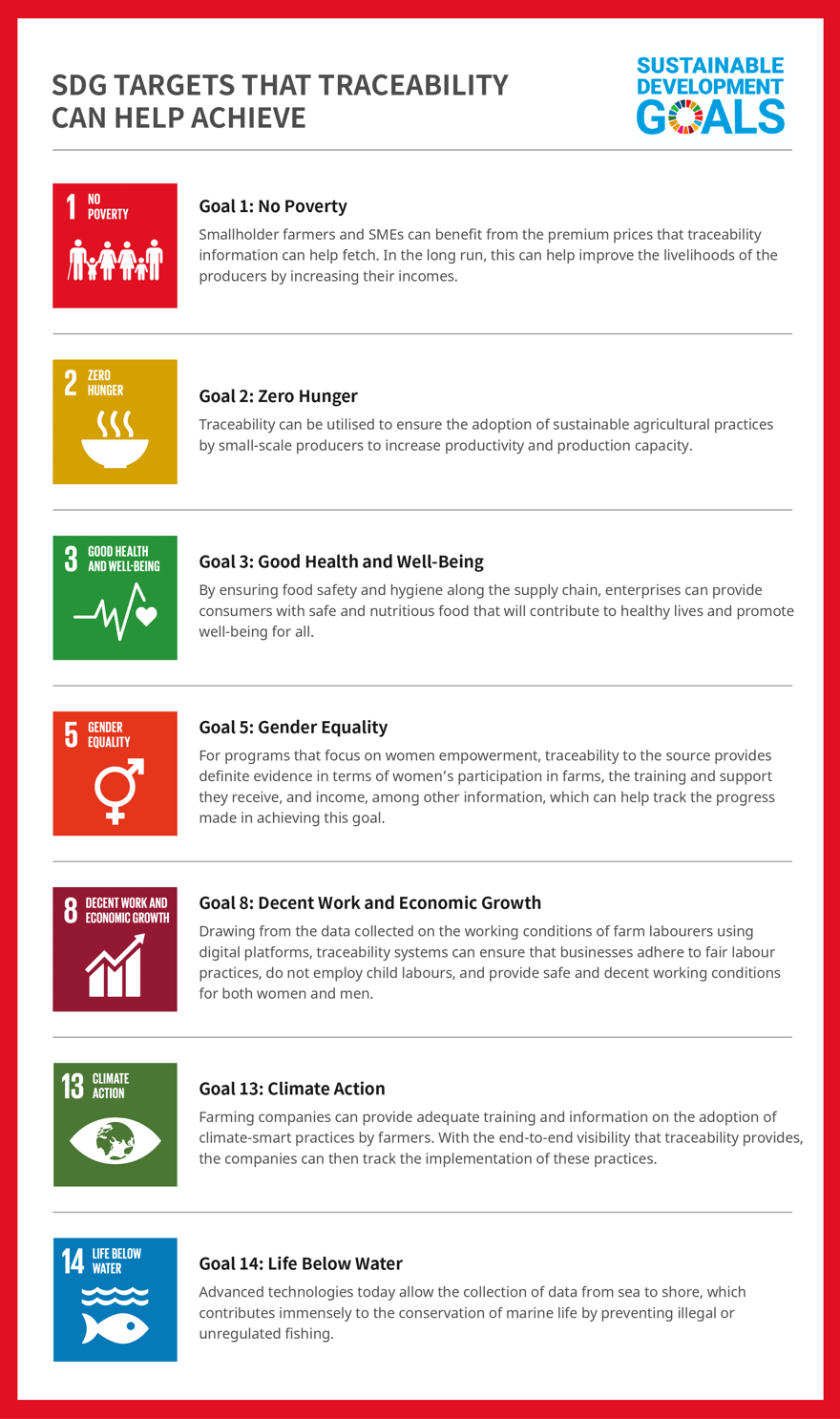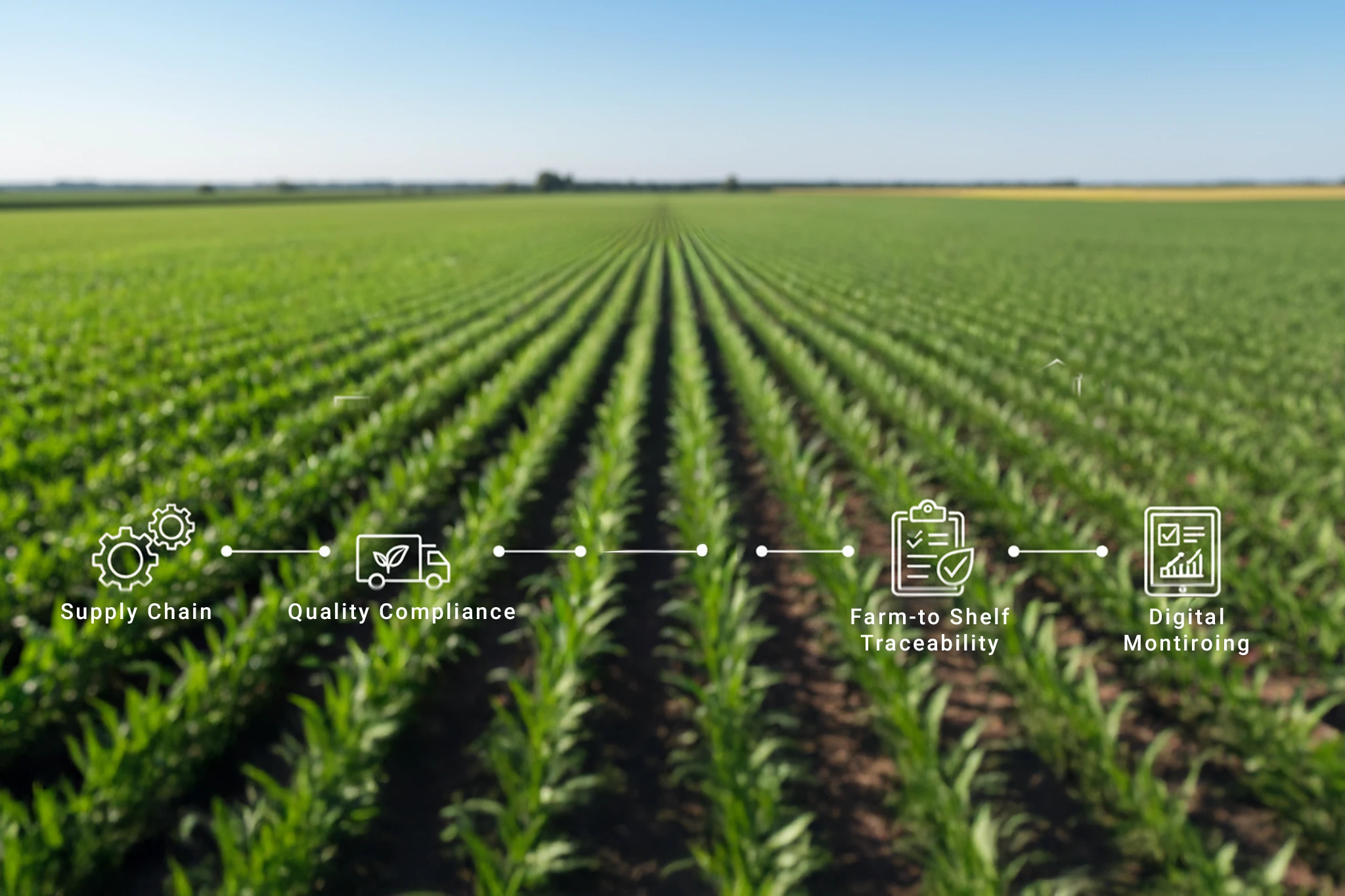1. Optimized supply chains
2. Food safety and quality compliance
3. Identification of deforestation risks in the supply chain
4. Better price realization
5. Strengthened brand equity
6. Improved market access
7. Contributing to the sustainable development goals
Several enterprises are identifying the role of traceability systems in supporting their mission to achieve sustainable development goals. At its core, the traceable information associated with each individually-labeled product can guarantee that the product was produced, packaged, and distributed sustainably.

Farm to fork– empowering agri-food supply chains to achieve their full traceability potential
Agri-food supply chains are complex networks that span geographies and impact a broad range of industries and their operations. Implementing end-to-end traceability in agriculture contributes to more than just regulatory compliance or ensuring food safety. It lowers operational costs for producers, improves profitability, regulates fraudulent activities or unethical practices, and unlocks new business opportunities.
When stakeholders actively collaborate to implement a tech-enabled end-to-end traceability system, supply chains can achieve their full potential.
Watch this webinar to discover more about the applications of traceability in agriculture and some of the challenges it helps overcome.










